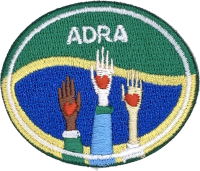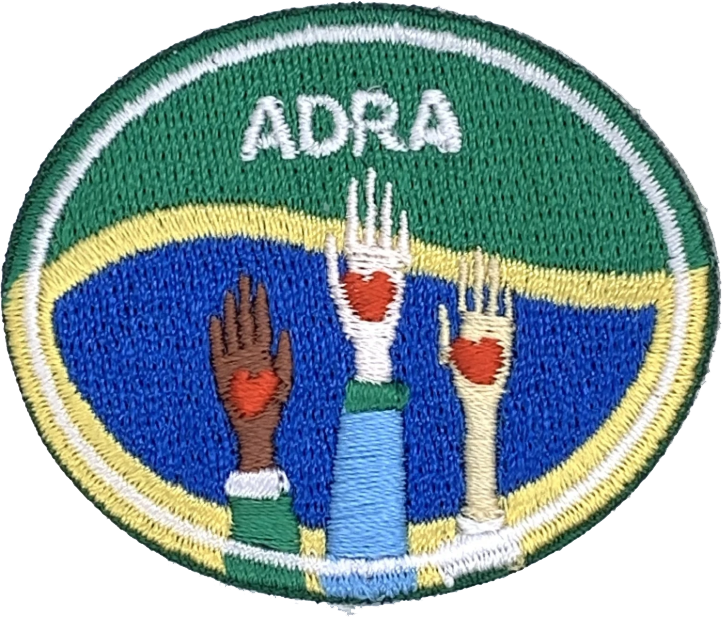AY Honor ADRA Annual Appeal Collector Answer Key
Skill Level
Unknown
Year
2020
Version
21.02.2026
Approval authority
British Union
1
According to ReliefWeb, the word "Appeal" includes substantive documents targeting the donor community or private donors, setting out financial requirements to provide humanitarian assistance.
2
ADRA works in 140 countries and provides services to children and adults in education, health and sustainable livelihoods. For example, ADRA-UK usually works with other agencies, such as DFID (Department for International Development) or Oxfam in order to deliver services such as water sanitation (Sri Lanka) education to children out of school (Children’s Advocacy Programme) or assisting farmers fully utilise their cashew harvest (Ghana) as well as in emergency response (Hurricane Dorian).
There are other examples which can be cited from ADRA-UK or ADRA.org
3
The work ADRA works is important because it helps to provide sustainable solutions to some of the world’s most challenging situations. In their development work, ADRA works with affected communities and encourages them to find workable and long-term answers to their current situations. During a disaster, ADRA is one of the first responders. This means that they assess the situation before partnering the local community to ensure that solutions are found in a timely manner.
4
“When the Son of Man comes in His glory, and all the holy angels with Him, then He will sit on the throne of His glory. All the nations will be gathered before Him, and He will separate them one from another, as a shepherd divides his sheep from the goats. And He will set the sheep on His right hand, but the goats on the left. Then the King will say to those on His right hand, ‘Come, you blessed of My Father, inherit the kingdom prepared for you from the foundation of the world: for I was hungry and you gave Me food; I was thirsty and you gave Me drink; I was a stranger and you took Me in; I was naked and you clothed Me; I was sick and you visited Me; I was in prison and you came to Me.’
“Then the righteous will answer Him, saying, ‘Lord, when did we see You hungry and feed You, or thirsty and give You drink? When did we see You a stranger and take You in, or naked and clothe You? Or when did we see You sick, or in prison, and come to You?’ And the King will answer and say to them, ‘Assuredly, I say to you, inasmuch as you did it to one of the least of these My brethren, you did it to Me.’
“Then He will also say to those on the left hand, ‘Depart from Me, you cursed, into the everlasting fire prepared for the devil and his angels: for I was hungry and you gave Me no food; I was thirsty and you gave Me no drink; I was a stranger and you did not take Me in, naked and you did not clothe Me, sick and in prison and you did not visit Me.’
“Then they also will answer Him, saying, ‘Lord, when did we see You hungry or thirsty or a stranger or naked or sick or in prison, and did not minister to You?’ Then He will answer them, saying, ‘Assuredly, I say to you, inasmuch as you did not do it to one of the least of these, you did not do it to Me.’ And these will go away into everlasting punishment, but the righteous into eternal life.”
Jesus uses the metaphor of a shepherd separating his sheep from his goats. Sheep represent people who are charitable - this does not have to be material means - to those in need. Furthermore, when the ‘righteous’ answer Jesus in verses 37-39, this infers that sheep do not discriminate when helping people and help without incentive, since they still helped strangers without knowing that they were also helping God.
Conversely, goats represent people who neglect those in need, those who discriminate against those they help. Verse 44 infers that people who are goats only act when they can recognise an incentive in front of them, since their reply suggests they did not know that helping others would mean that they are helping God, and consequently inherit the kingdom of God.
Furthermore, the text suggests that charity must meet the needs of the person and that not all help is satisfactory help, this can be seen in throughout the parable where a need is listed then the appropriate response to that need, i.e. ‘we see you hungry and feed you’.
Moreover, sheep as animals are prey, herbivores - they are not high in the food chain hierarchy - and they are largely defenceless. Suggesting in service we as sheep are not the powerful helpers, serving the weaker people below us but, are God’s humble servants.
5
5a
Raise over £10 for ADRA during the Appeal using the Appeal Coin Collector’s Card.
5b
Raise over £20 for ADRA during the Appeal using the Appeal Coin Collector’s Card.
Give a three-minute presentation in your school of Sabbath School of church on what you know about ADRA.
Ensure that your record each child’s donation.
Ensure that you see the script of the presentation from the Pathfinder. Alternatively, this can be filmed so that there is a record of it.
5c
i
Raise over £30 for ADRA during the Appeal using the Appeal Coin Collector’s Card.
Please ensure that the Pathfinder has this in their folder.
Ensure that your record each child’s donation.
ii
Organise a fundraising event for ADRA and raise at least £30.00 (each, if you are doing it as a group).
Please make sure that you see a copy of their social media story.






